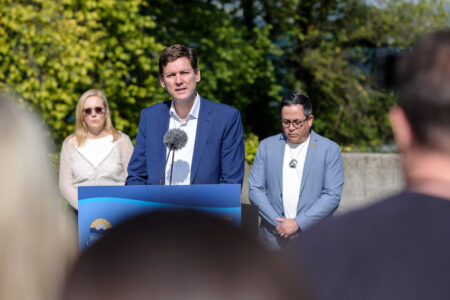Energy builds on city’s biomass project
The city’s biomass project has achieved critical mass as it moves ahead in earnest with the next phase of its alternative heating project for the downtown.
Utilizing biomass from locally collected wood waste, Nelson Hydro is developing the next phase of a low carbon alternative to heating with natural gas, and nailing down the business case for constructing a plant to produce it for distribution in the downtown core.
Called the District Energy System (DES), the next phase includes proceeding with preliminary design, securing financing and applying for grant funding.
As well, Nelson Hydro will set up memorandums of understanding with customers and fuel suppliers.
The city has committed up to $100,000 to explore the feasibility of the project, said Mayor Deb Kozak.
“One of the things that sets the district energy proposal apart from the solar garden or those kinds of things, this is specifically about GHG (greenhouse gas) reduction,” she said.
The district energy system being proposed for Nelson would consist of a central heating plant, an underground piping system that would transport heated water to buildings within the community, and energy transfer stations at each building that would transfer the heat from the water to the facility.
The central energy plant would have a biomass boiler that would use wood waste from the local area as a fuel source. This system would be for heat only and would not generate electricity.
Kozak said the majority of buildings within Nelson rely on natural gas as a heating fuel. Heat from the district energy system would displace natural gas and significantly reduce the greenhouse gas emissions that arise from the burning of natural gas.
Wood waste is a very carbon lean energy source as the carbon released during combustion would have eventually been released into the atmosphere through natural decomposition of the wood. Only existing waste material from the local forestry industry would be used as a fuel source.
The rate model for energy sales would be an incentive rate with energy priced at 10 per cent below the equivalent natural gas rate.
The benefits for customers of a district energy system include improved energy efficiency, reduced maintenance costs, reliability, reduced space requirements for mechanical equipment and ease of operation.
The system would be located in the lakefront area, said Love, and supply heat to buildings — including core downtown buildings and Kootenay Lake Hospital as potential customers — produced from biomass boilers using local wood waste for fuel.
The project will not be designed for use by individual homes in Nelson at this point, said Kozak.
“Because the infrastructure is quite expensive to put into place … it might be a bit early. It’s not something we have discussed,” she said.
A district energy system produces steam, hot water or chilled water at a central plant that is delivered to various buildings connected through an underground piping system. The energy delivered by the system through steam or water can then be used for space heating, domestic hot water and air conditioning.
The full project has a capital cost of about $5 million, with a payback of 15 years or less based on a combination of financing rates, grant funding and customer connections.
Even though initially the utility revenues will be directed toward paying back its own capital costs the utility will become a net revenue generator for the city. The other benefits such as reduced greenhouse gas emissions and local supply of energy will begin in the first year of operation.
The DES business plan document is slated to become available on the city’s website.

























